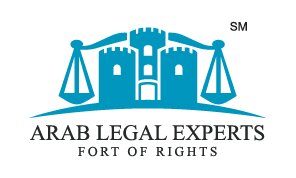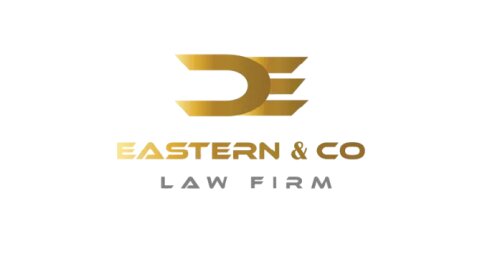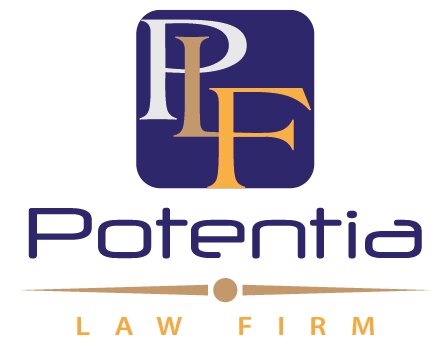Best Due Diligence Lawyers in Dokki
Share your needs with us, get contacted by law firms.
Free. Takes 2 min.
List of the best lawyers in Dokki, Egypt
About Due Diligence Law in Dokki, Egypt
Due diligence in Dokki, Egypt, refers to the careful review of records and documents before completing transactions or agreements. In practice, this means verifying ownership, liabilities, contracts, and regulatory compliance to reduce risk. For residents, this process is governed by national statutes and enforced through Cairo courts and local registries. In Egypt, lawyers are typically called advocates or attorneys, and the term solicitor is not commonly used in this context.
Dokki is a district within the Giza Governorate near central Cairo, where many real estate deals, company formations, and investments occur. Local practice follows nationwide laws, but the pace and accessibility of records can vary by the district and registry. A qualified lawyer in Dokki can coordinate title searches, corporate records, and regulatory checks efficiently.
According to the official government portal, Egypt has launched reforms to simplify property registration and investment procedures to attract private investment.Source: https://www.gov.eg/
Egyptian investment guidance emphasizes due diligence as a critical part of investment processes and corporate transactions.Source: https://www.gafi.gov.eg/
Why You May Need a Lawyer
Having a lawyer is essential when your Dokki deal involves complex documentation or potential hidden risks. A qualified advocate can spot issues ordinary buyers or managers might miss and guide you toward safer terms.
- Purchasing a condo or office space in Dokki requires verifying title ownership and encumbrances before signing a deed, to avoid defective transfers.
- Setting up a new local business or joint venture demands review of corporate structure, shareholdings, and outstanding liabilities to prevent unexpected creditor claims.
- Signing a long-term lease with a company or institution in Dokki benefits from a lawyer’s review of rent schedules, termination rights, and sublease issues.
- Engaging in a cross-border investment or acquisition in Egypt requires a due diligence package on target entities, licenses, and compliance with foreign ownership rules.
- Handling inheritance, estate distribution, or succession disputes in Dokki needs careful verification of heirs, wills, and court confirmations to avoid future challenges.
- Seeking a mortgage or loan tied to real property in Dokki entails checking lien status, prior encumbrances, and enforceability of security documents.
Local Laws Overview
Key statutes commonly referenced in Dokki for due diligence include the Civil Code, property and company law, and investment regulations. The official framework is supported by the Ministry of Justice, the General Authority for Investment and Free Zones (GAFI), and Cairo registry offices. The terminology used in Egypt typically refers to advocates or attorneys rather than solicitors or barristers.
- Egyptian Civil Code No. 131 of 1948 (as amended) - governs contracts, obligations, and non-contractual duties, forming the baseline for due diligence in many commercial and real estate transactions.
- Real Estate Registration Law No. 114 of 1946 - sets out title search, registration procedures, and encumbrance checks essential to property transfers in Dokki.
- Investment Law No. 72 of 2017 - outlines the framework for investment approvals, licenses, and related due diligence for investors and strategic projects.
- Companies Law No. 159 of 1981 - governs corporate formation, governance, and the due diligence checks needed during mergers, acquisitions, and restructurings.
Recent reforms have focused on digitalizing title registries and clarifying regulatory requirements to reduce approval times in property transfers and investment projects. Implementing regulations and guidance are typically published by GAFI and the Ministry of Justice alongside district registry offices.
New reforms aim to reduce approval times for property transfers and investment projects.Source: https://www.gov.eg/
GAFI emphasizes due diligence as a critical element in investment processes and corporate transactions.Source: https://www.gafi.gov.eg/
Frequently Asked Questions
What is due diligence in Dokki, Egypt?
Due diligence is a careful review of records, titles, contracts, and regulatory compliance before signing a deal in Dokki. It helps identify risks and inform negotiations. A lawyer can coordinate title searches and document checks.
How do I start due diligence for a property purchase in Dokki?
Begin with a title search at the Cairo Land Registry, gather the deed, survey plans, and any liens. Then request a lawyer to review contracts, encumbrances, and regulatory approvals.
What documents are needed for real estate due diligence in Dokki?
Common documents include the property title deed, previous transfer records, survey plans, current mortgage or lien records, building permits, and occupancy certificates.
How long does a due diligence review take in Dokki?
A basic title check can take 1-2 weeks, while a full corporate and real estate due diligence may take 2-6 weeks, depending on record accessibility and complexity.
Do I need a lawyer for due diligence in Dokki?
Yes. A licensed advocate ensures compliance with Egyptian law, coordinates registry searches, and negotiates risk mitigations before signing any agreement.
What is the cost of due diligence in Dokki?
Costs vary by case type and complexity. Expect legal fees for initial consultations, document review, and the final due diligence report, plus registry or filing fees where applicable.
What is the difference between due diligence and a title search?
A title search verifies ownership and encumbrances. Due diligence includes title checks plus contract review, regulatory compliance, and financial or corporate risk assessment.
Can I perform due diligence myself without a lawyer?
You can do initial checks, but a lawyer’s review reduces legal risk, ensures proper interpretation of laws, and helps negotiate protective terms.
Should I request a due diligence report before signing a deal?
Yes. A formal report highlights risks, estimates timelines, and frames necessary concessions. It supports informed decision-making and negotiation leverage.
Is there a difference in due diligence for corporate transactions vs real estate?
Yes. Real estate due diligence emphasizes title, encumbrances, and building permits, while corporate due diligence focuses on corporate documents, liabilities, and compliance.
Do due diligence requirements differ for Egyptian citizens vs foreigners?
Fundamentally the process is similar, but foreign investors may face additional regulatory checks, licensing requirements, and currency transfer considerations.
What is the role of a Dokki-based advocate in the process?
The advocate coordinates document gathering, conducts searches, reviews contracts, and negotiates protective terms. They prepare the due diligence report and guide next steps.
Additional Resources
- General Authority for Investment and Free Zones (GAFI) - official body overseeing investment licenses, regulatory compliance, and related due diligence guidance. https://www.gafi.gov.eg/
- Egyptian Government Portal - central source for laws, reforms, and administrative procedures affecting real estate and business in Egypt. https://www.gov.eg/
- CAPMAS - official statistics and data related to population, housing, and economic indicators that can inform due diligence planning. https://www.capmas.gov.eg/
Next Steps
- Define your objective and scope of review. Decide if the deal is real estate, corporate, or both, and note required timelines. (1-2 days)
- Identify at least 3 Dokki-based advocates with due diligence experience. Gather client reviews and confirm licensing with the local bar association. (3-7 days)
- Prepare a concise document checklist for the lawyer, including IDs, deeds, corporate docs, and existing contracts. (2-5 days)
- Schedule initial consultations and discuss budgets, scope, and expected deliverables. Get a written engagement letter. (1-2 weeks)
- Have the lawyer perform preliminary screenings such as title checks and basic contract reviews. Request a preliminary report with risk observations. (2-3 weeks)
- Review the due diligence findings, negotiate terms, and decide on next steps or a fallback plan. (1-2 weeks)
- Proceed to signing and closing with documented risk mitigations and final reconciled documents. (2-6 weeks depending on complexity)
Lawzana helps you find the best lawyers and law firms in Dokki through a curated and pre-screened list of qualified legal professionals. Our platform offers rankings and detailed profiles of attorneys and law firms, allowing you to compare based on practice areas, including Due Diligence, experience, and client feedback.
Each profile includes a description of the firm's areas of practice, client reviews, team members and partners, year of establishment, spoken languages, office locations, contact information, social media presence, and any published articles or resources. Most firms on our platform speak English and are experienced in both local and international legal matters.
Get a quote from top-rated law firms in Dokki, Egypt — quickly, securely, and without unnecessary hassle.
Disclaimer:
The information provided on this page is for general informational purposes only and does not constitute legal advice. While we strive to ensure the accuracy and relevance of the content, legal information may change over time, and interpretations of the law can vary. You should always consult with a qualified legal professional for advice specific to your situation.
We disclaim all liability for actions taken or not taken based on the content of this page. If you believe any information is incorrect or outdated, please contact us, and we will review and update it where appropriate.











